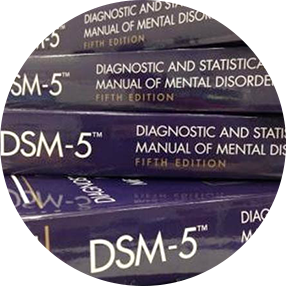Delusional Disorder
Delusional disorder usually first affects people in middle or late adult life. It is less common than schizophrenia. Delusional disorder is distinguished from schizophrenia by the presence of delusions without any of the other symptoms of psychosis (for example, hallucinations, disorganized speech, or disorganized behavior).
Delusions may involve situations that could conceivably occur in real life, such as being followed, poisoned, infected, or loved at a distance. Or they may involve situations that are very unlikely to occur, such as having internal organs removed without leaving a scar. The difference between a delusion and a false or mistaken belief is that people continue to believe in a delusion no matter how much clear evidence contradicts it.
- The false beliefs may be ordinary things that could occur (such as being deceived by a spouse) or things unlikely to occur (such as having internal organs removed without leaving a scar).
- This disorder may develop in people with a paranoid personality disorder.
- Doctors base the diagnosis mainly on the person’s history after they rule out other possible causes.
- People usually remain functional and employed.
- A good doctor-patient relationship is essential to treatment.
Types of delusional disorder
There are several subtypes of delusional disorder:
- Erotomanic: People believe that another person is in love with them. They often try to contact the object of the delusion through telephone calls, letters, or digital messages. Some attempt surveillance, and stalking is common. Behavior related to the delusion may be against the law.
- Grandiose: People are convinced that they have some great talent or have made some important discovery.
- Jealous: People are convinced that a spouse or lover is unfaithful. This belief is based on incorrect inferences supported by dubious evidence. Under such circumstances, physical assault may be a significant danger.
- Persecutory: People believe that they are being plotted against, spied on, maligned, or harassed. People may repeatedly file lawsuits or reports to the police or other government agencies. Rarely, people resort to violence in retaliation for imagined persecution.
- Somatic: People are preoccupied with a bodily function or attribute, such as an imagined physical deformity or odor. The delusion can also take the form of an imagined medical disorder, such as having parasites.
A delusional disorder may develop from a preexisting paranoid personality disorder. Beginning in early adulthood, people with a paranoid personality disorder have a pervasive distrust and suspiciousness of others and their motives.
Early symptoms of delusional disorder may include
- Feeling exploited
- Being preoccupied with the loyalty or trustworthiness of friends
- Reading threatening meanings into benign remarks or events
- Bearing grudges for a long time
- Responding readily to perceived slights
Behavior is not obviously bizarre or odd. People with delusional disorder tend to function relatively well, except when their delusions cause problems. For example, they may have marital problems if they are incorrectly convinced their spouse is being unfaithful.
Contact Dr. Fogelson’s office to schedule an appointment.

